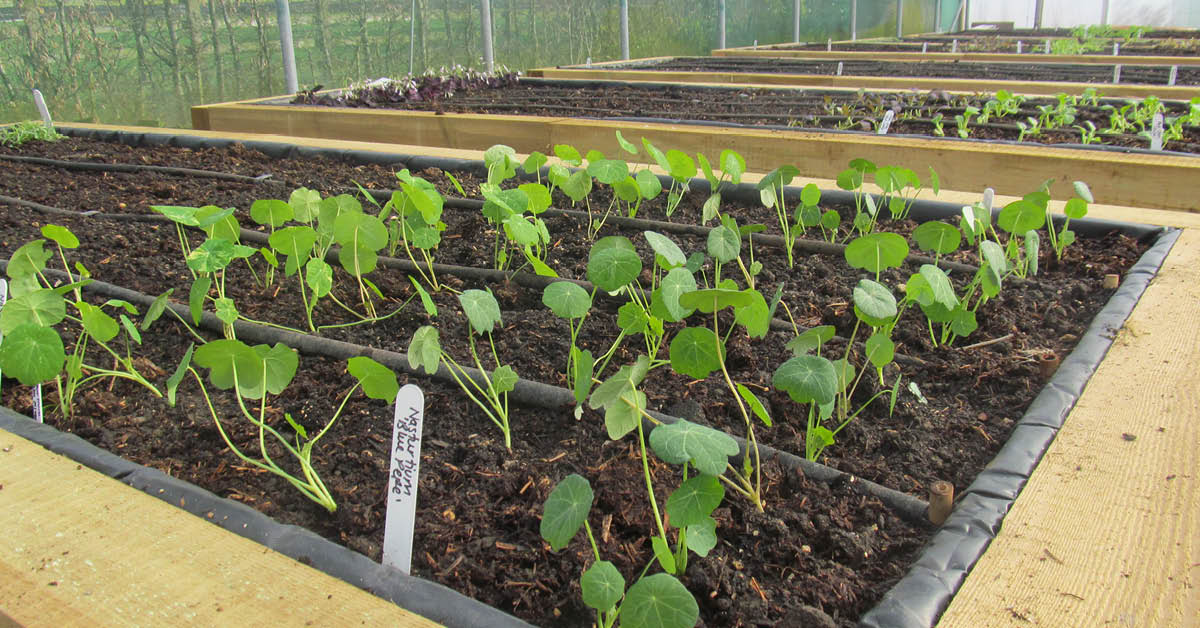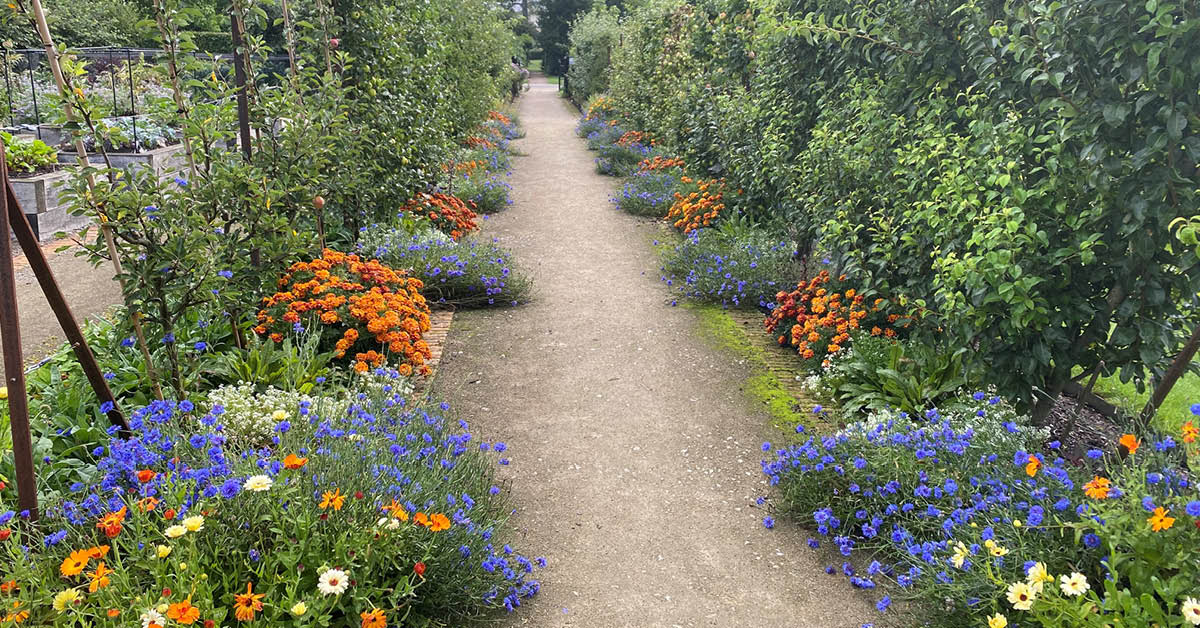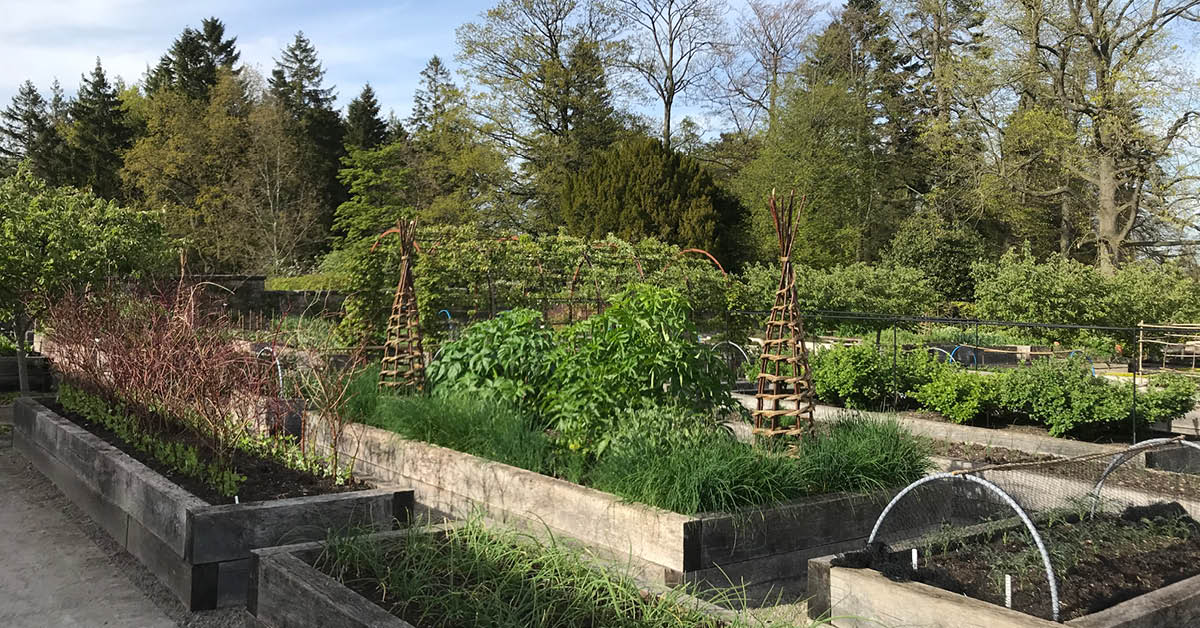Subscribe to trusted local news
In a time of both misinformation and too much information, quality journalism is more crucial than ever. By subscribing, you can help us get the story right.
- Subscription costs less than £1 a week with an annual plan.
Already a subscriber? Log in here.
31
Oct 2021
Stray Gardener: To dig or not to dig?

 The Stray Gardener is written by Rudding Park’s Kitchen Gardener, Fiona Slight. Fiona has worked in horticulture for more than 30 years in the UK and abroad, and specialises in growing fruit and vegetables for fine dining. This month, Fiona explains her easier alternative to digging - and how it can help the planet too.
The Stray Gardener is written by Rudding Park’s Kitchen Gardener, Fiona Slight. Fiona has worked in horticulture for more than 30 years in the UK and abroad, and specialises in growing fruit and vegetables for fine dining. This month, Fiona explains her easier alternative to digging - and how it can help the planet too.
November is usually the time of year when you start thinking about tidying up your vegetable garden, start digging over the beds and adding manure or other humus rich material. But do you really want the hassle of all that hard work, and is it really necessary? I don’t think so and here’s why…
I am essentially quite a lazy person and if there is an easier way to do something I’ll have a go! I have found there is an alternative to digging that is becoming increasingly popular, especially by people who want to grow along organic lines and be more environmentally friendly.
‘No-dig’ as it is called, is a process where organic matter such as garden compost, well-rotted manure or spent mushroom compost is applied to the soil surface copying the natural process of decomposition when plants die back and leaves fall. Doing this avoids breaking up the fragile ecosystems that have developed in the soil and allows fungi and soil organisms to break down and incorporate the organic matter into the soil naturally. We have adopted this technique on all the raised beds in the Kitchen Garden at Rudding Park, and are now reaping the rewards.
No-dig is especially beneficial for vegetable growing, by making either raised beds (useful if you have very wet, clay soils) or beds that have narrow paths round them for easy access, but to avoid having to tread on them too often. That being said, once a no-dig bed has established, it is possible to stand on it and not do too much damage as the soil organisms produce a strong structure to withstand some light foot fall.
Once the no-dig beds are in place and they are established, you will find you need less time weeding. Digging over soil is a sure-fire way to expose seeds which will then germinate and can cause problems if not dealt with quickly; by not digging the soil over you can avoid this happening. By applying manure or compost to the top layer of your bed, you are effectively mulching, which can stop the first flush of annual weeds growing through in the spring, buying you more time for other jobs.
The downside is, it doesn’t get rid of all perennial weeds, so careful preparation beforehand will pay dividends. Removing any obvious perennial weeds before you start or by laying cardboard or other thick layers such as carpet that can be removed after a period of time should help to get rid of them. Any that pop up after that can be dealt with individually and will eventually decline in time.
No-dig is also a great way to help the environment. By continuously mulching your beds, it helps improve their ability to hold on to moisture, meaning you do not need to water as much in dry periods. Also, digging the soil can cause stored carbon to oxidise and be released as carbon dioxide, so by avoiding digging the carbon stays in the soil, helping to limit climate change.
If you have been put off growing fruit and vegetables in the past because of the hard work digging, consider giving no-dig a try. Once you have the structure in place, not only does it make life easier, you are also doing your bit for the environment.
Read More:
Fiona's Five Top Tips for November:
- Prune your fruit bushes – blackcurrants, redcurrants, whitecurrants and gooseberries can all be pruned from November to March. Prune out any dead, dying or diseased stems, aiming for a goblet shape.
- Clear out fallen leaves from ponds to ensure the water stays healthy for fish and other wildlife.
- Prune roses down to prevent wind rock over the winter.
- Pot up amaryllis bulbs and water regularly for a good display at Christmas.
- Try root cuttings on plants such as papaver, anemone and verbascum.
Happy gardening!
0